'American Psycho' producer Edward R. Pressman shares secrets of the cult film on its 20th anniversary
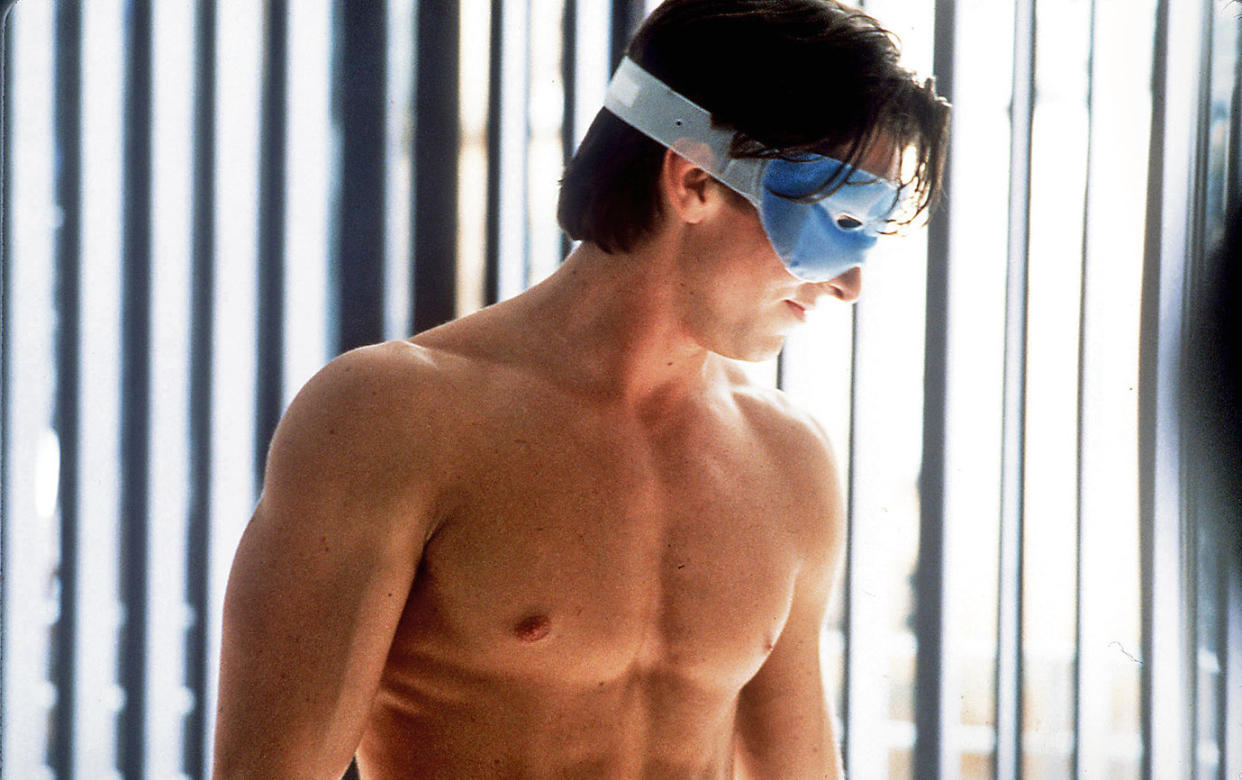
Bret Easton Ellis's searing corporate satire American Psycho, penned in 1991, was as controversial, violent, banal, disturbing and (more often than you'd think) amusing a novel as one could imagine. Bringing it to the screen would give any filmmaker with an ounce of sense considerable pause. Many would simply deem it unfilmable. But just a year after the book was published, Edward R. Pressman, veteran producer of celebrated movies like Terrence Malick's directorial debut Badlands, Das Boot and Wall Street, leapt into the breach and optioned it.
Now all he had to do was make it. That part ended up taking a while. With Johnny Depp, Leonardo DiCaprio and Edward Norton at one time set to play the psychotic investment banker Patrick Bateman, and Oliver Stone and David Cronenberg in the frame to direct, it was a bumpy ride to the screen. I Shot Andy Warhol director Mary Harron, who had co-penned the script, eventually beat out higher profile competition to helm it with her first choice Christian Bale as Bateman, gifting the former child star the role that cemented his position as viable leading man in Hollywood.
On the occasion of the movie's 20th anniversary, Yahoo Movies UK spoke to Pressman about how he brought Ellis's horrifying book to the screen, and for god's sake why...
Yahoo Movies UK: When did you first become aware of Ellis’s novel?
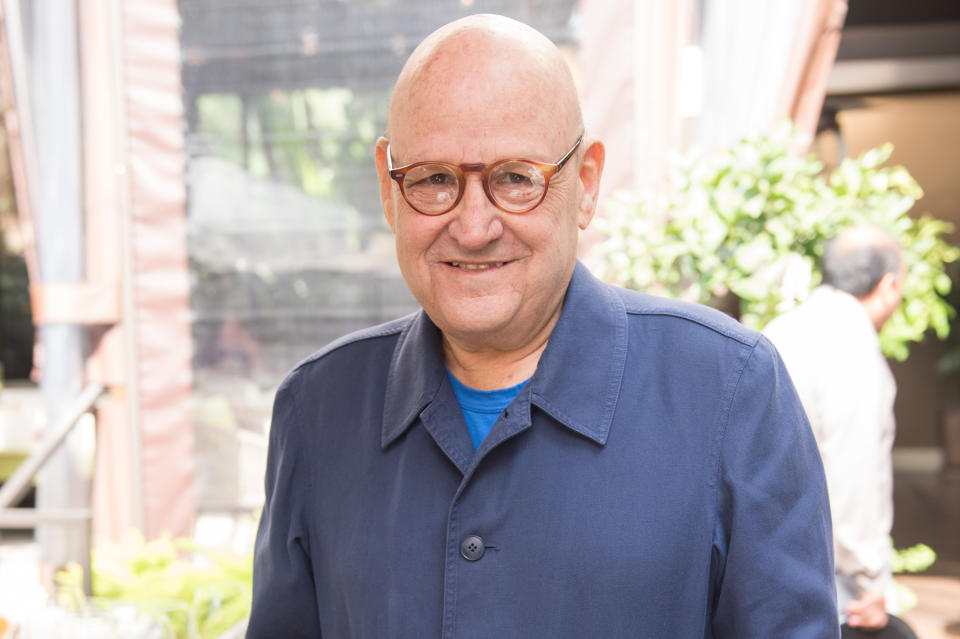
Edward R. Pressman: I remember reading it, and I was in the Hollywood Hills [in 1992], and there were fires in Los Angeles right in front of my eyes. People looting, stealing TV sets. There was race war going on. So when I read the book, I was feeling very impressionable. It caught the moment.
It was given to me by [Re-Animator director] Stuart Gordon. He wanted to make the movie, do it in black and white, and make it ultra-violent. I really thought the only way to take the curse off it, ideally, was to bring in a female director.
Leonardo DiCaprio was set to play Bateman early on, how did he become involved?
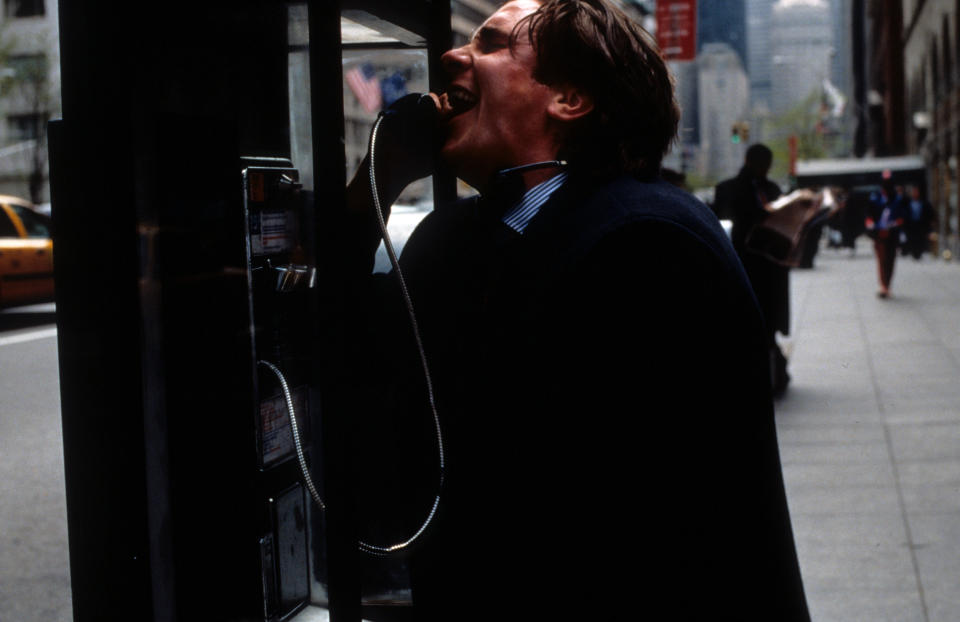
We'd developed the film and brought it to Lionsgate [then Lion’s Gate], who wanted to make it as a low-budget movie. Then just prior to Cannes in 1997, one of the executives at Lionsgate gave DiCaprio [Harron and Guinevere Turner's] script without talking to us about it. Leo said yes, and gave his blessing for a press release at Cannes. It created a whirlwind. Everyone wanted the film now. It was a magical moment just after Titanic came out.
An Italian distributor flew me from Cannes to his home on the coast of Italy. He had a basement with 15 red Ferraris. He said 'anything you're offered, we will top it'. It sounded like the Russian mob or something. But Mary always stood her ground and said 'it's never gonna happen'. Perhaps it was wishful thinking, but it came true, because after [feminist icon and journalist] Gloria Steinem wrote an article for a major magazine saying that the movie should not be made, that it was misogynistic, Leonardo quit. There was public rancour. A lot of people hated the book. And without seeing the movie, they hated the movie too. [Ironically, Christian Bale's father David ended up marrying Steinem].
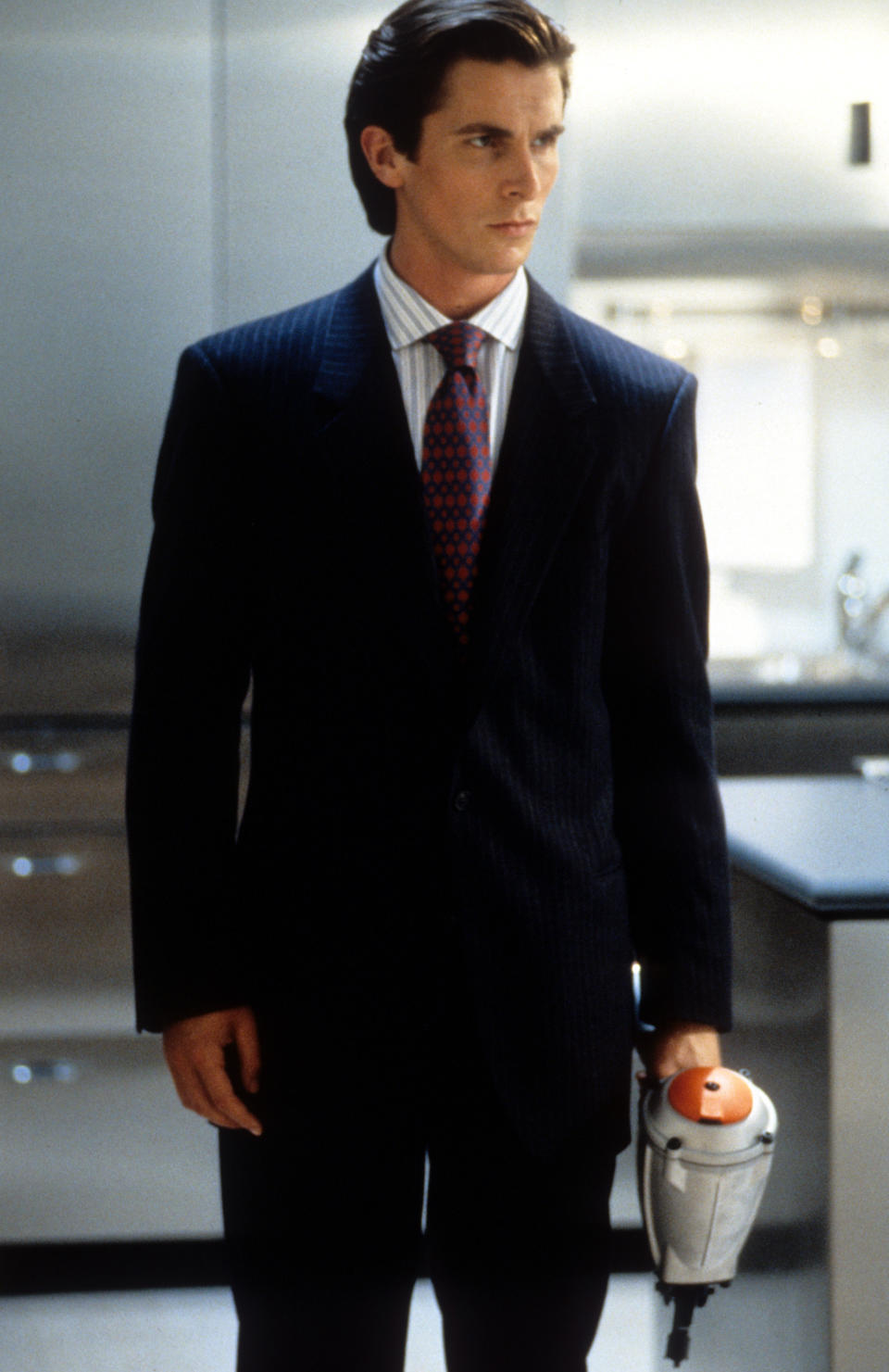
A lot of A-list directors wanted to be involved too, right?
When Leonardo announced he wanted to do it, we were approached by Oliver Stone, David Cronenberg, a lot of major filmmakers all of a sudden wanted to do it with Leo. [David] Lynch was one of the first directors I went to as well, and he was interested. Tim Burton came to see me in my hotel room in New York too.
So how did Mary Harron beat out such big names?
She's a very smart gal. And had a real grasp of the movie's irony. The term we always used, Bret and I, was that we always wanted to find a director with a sense of 'cosmic irony'. The epitome of that was, say, Kubrick with A Clockwork Orange. That was the term we used among ourselves in trying to find the right filmmaker. Talking to Mary and seeing her work, and certainly after we saw her script, we thought she'd done a marvellous job. She didn't take the guts from the book. Many would have been turned off by it. It's a very cynical, but also very funny and witty book. Mary captured that, and the ambiguity of it.
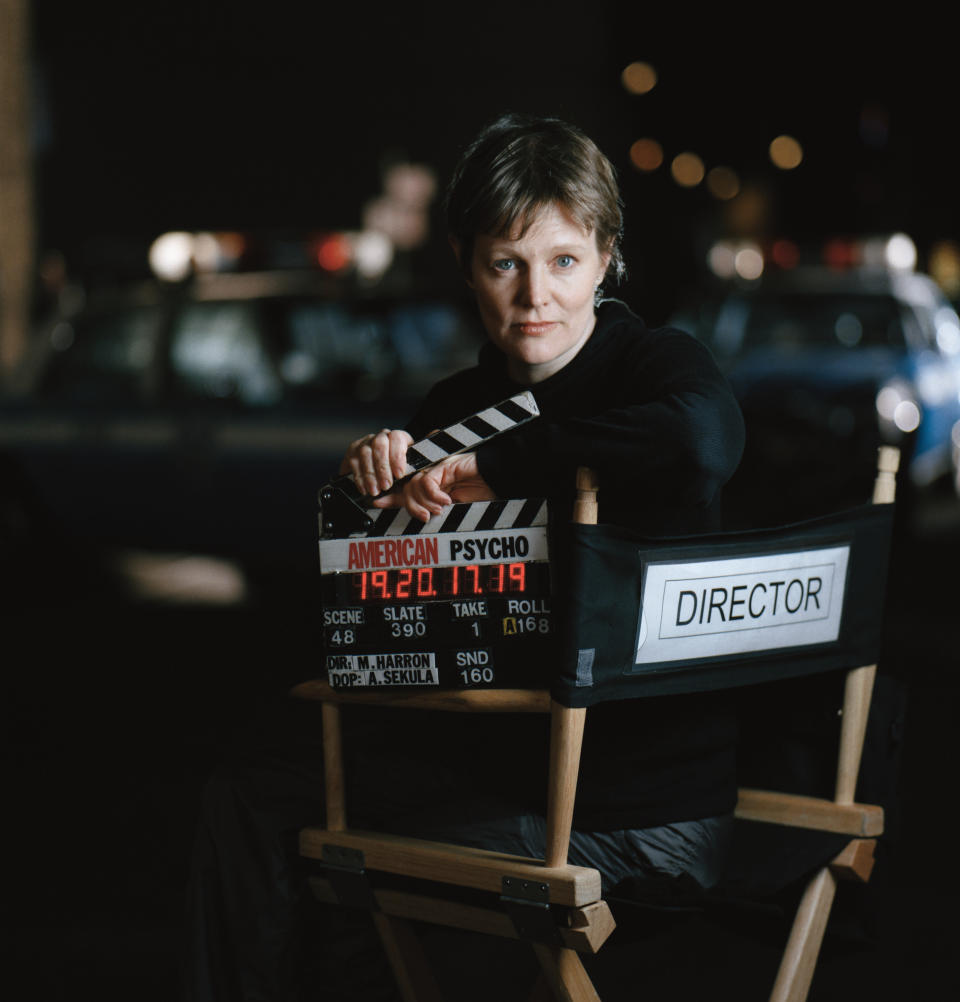
How were the first reactions to the movie?
I remember when the film had its first screening at Sundance. It was super packed. You couldn't get in. It was something people wanted to see by reputation. Fascination even. A lot of people had criticised the book probably more than those who favoured it. We didn't have an established star in the movie, though there was Willem Dafoe, but it was about the younger actors – Reese Witherspoon [and also Jared Leto and Justin Theroux] – who would become famous later.
Why did Mary want Bale in the lead so much?
Mary is an excellent casting talent. She auditioned a lot of people. But she made the decision on Christian, and he really wanted this role. When DiCaprio was going to do the movie, Christian reached out to me to try and save the day. The studio were determined to do it with Leo. But Christian was dead set on the role, and saw what it could be. Mary never stepped away from the project, but the project started to step away from her. But she and Christian always kept the faith. She'd spent a lot of time working on it. But the whole whirlwind with DiCaprio only ended up being about two weeks.

Were you confident that audiences would 'get it'?
I think it was the shock value and the controversial nature that made the film stand out. It's extreme. The ego, the superficiality. I was in New York, and it was playing near where I lived, so on opening night I like to go to the theatres and see reactions. I stopped at 42nd Street at the bottom of Broadway. It was a big theatre, and it was packed. The manager said to me 'Oh, this movie's going to do $15-$20 million this weekend'.
What we found was that the film was doing great in several cities, primarily on the coasts. Some college towns. But business across the country was disappointing. It was maybe more in the consciousness in the cities. It cost $8 million to make, but it was profitable. And continues to be.
Bret Easton Ellis has since said that he perhaps wasn't as pleased with the final movie as he might have been. Do you have any thoughts on that?
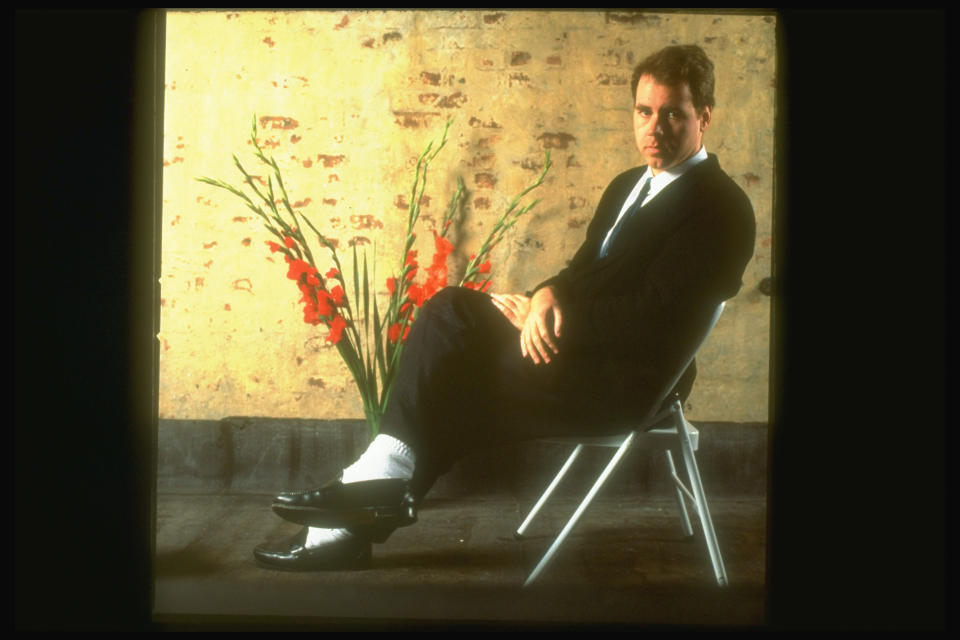
We got to be friends. I still see him a couple of times a year. When I've seen him, he's been enthusiastic about the movie. But I've also read him putting it down. But Bret has always been a bit of a rascal.
Most of the time, he's said he's been happy with it, and we've stayed friends. I'd very much like to work with him again.
American Psycho is available to stream on Netflix now.

 Yahoo Movies
Yahoo Movies 

